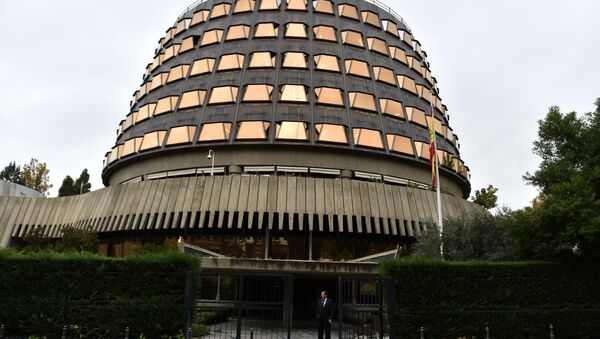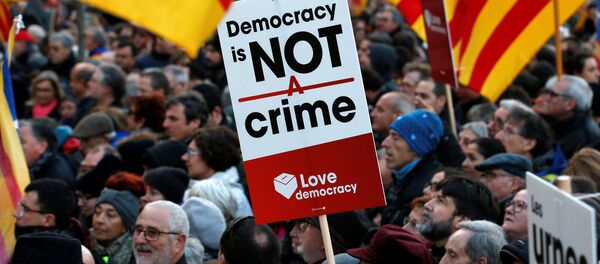The judges will deliberate on whether or not the referendum is constitutional before they allow the referendum (if at all) to go forward. This comes after Spanish Prime Minister Mariano Rajoy appealed to the Constitutional Court to shoot the referendum down.
"[The referendum is] something that the government and the courts can't allow," Rajoy said in a televised address on Thursday. "There won't be a self-determination referendum because that would be taking away from other Spaniards the right to decide their future."
"Patriotic unities that go beyond the rights of citizens don't have a place in today's Europe," replied Carles Puigdemont, president of Catalonia.
On Wednesday, the Catalan Parliament voted to hold a referendum on whether or not the wayward province would remain as part of Spain or become an independent nation. The coalition government of Catalan is made up of separatist political parties. Madrid is strongly opposed to Catalan independence.
The 1978 Spanish Constitution calls Spain the "indivisible homeland of all Spaniards." Therefore, Rajoy and other Madrid leaders argue, Catalonia's attempts to separate are unconstitutional.
Carme Forcadell, speaker of the Catalan Parliament and one of the most prominent leaders of the independence movement, tweeted that the Constitutional Court was "another extension of the [Spanish] state which has lost all legitimacy." Madrid prosecutors have said that they intend to bring criminal charges of disobedience, abuse of power, and embezzlement against Forcadell and other separatist leaders.
Although Catalonia has had an independent streak since it was conquered by the Spanish king in the 18th century, the true push for independence came in the wake of the 2008 economic crisis that hit Spain especially hard. The Spanish economy shrank 25 percent in eight years, and the highly industrialized province of Catalonia is a crucial piece of the economy's slow recovery. A full 20 percent of the country's GDP comes from the province, making it Spain's most prosperous.
The tensions worsened in 2010, when the Constitutional Court struck down several clauses of the Catalan Constitution that were meant to increase the region's autonomy. In 2014, Catalan separatists held a symbolic referendum where around 80 percent of the respondents voted in favor of independence. Polls typically find a near-even split between separatists and unionists, but in 2015 Catalonia elected a pro-separatist parliament for the first time.



